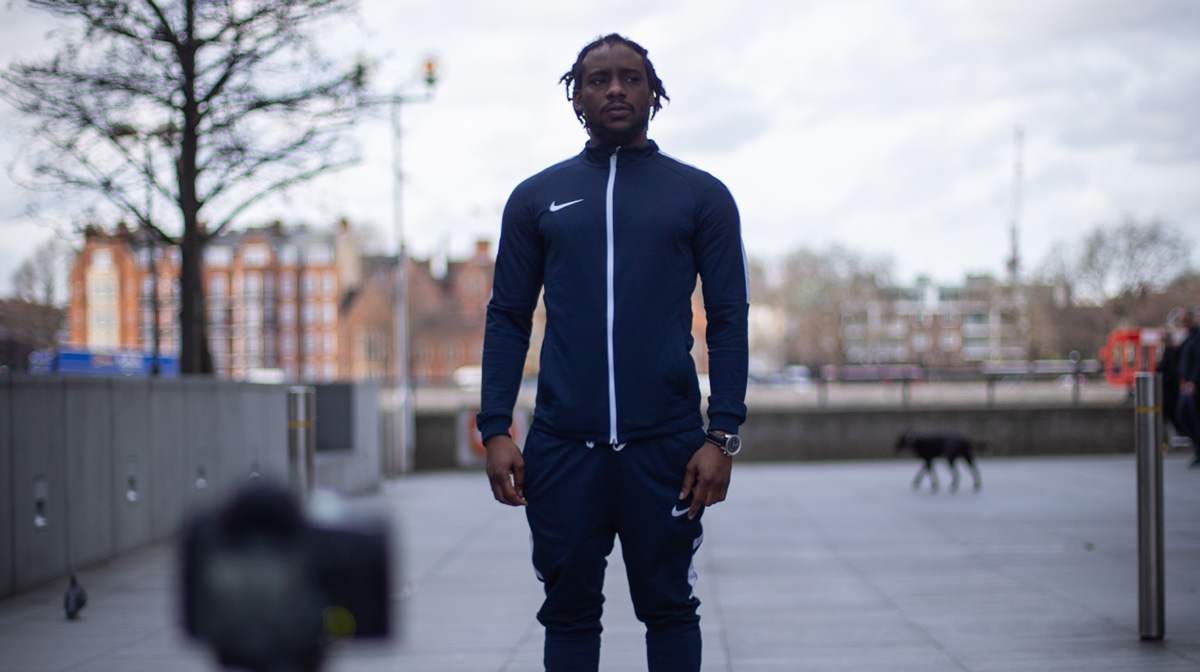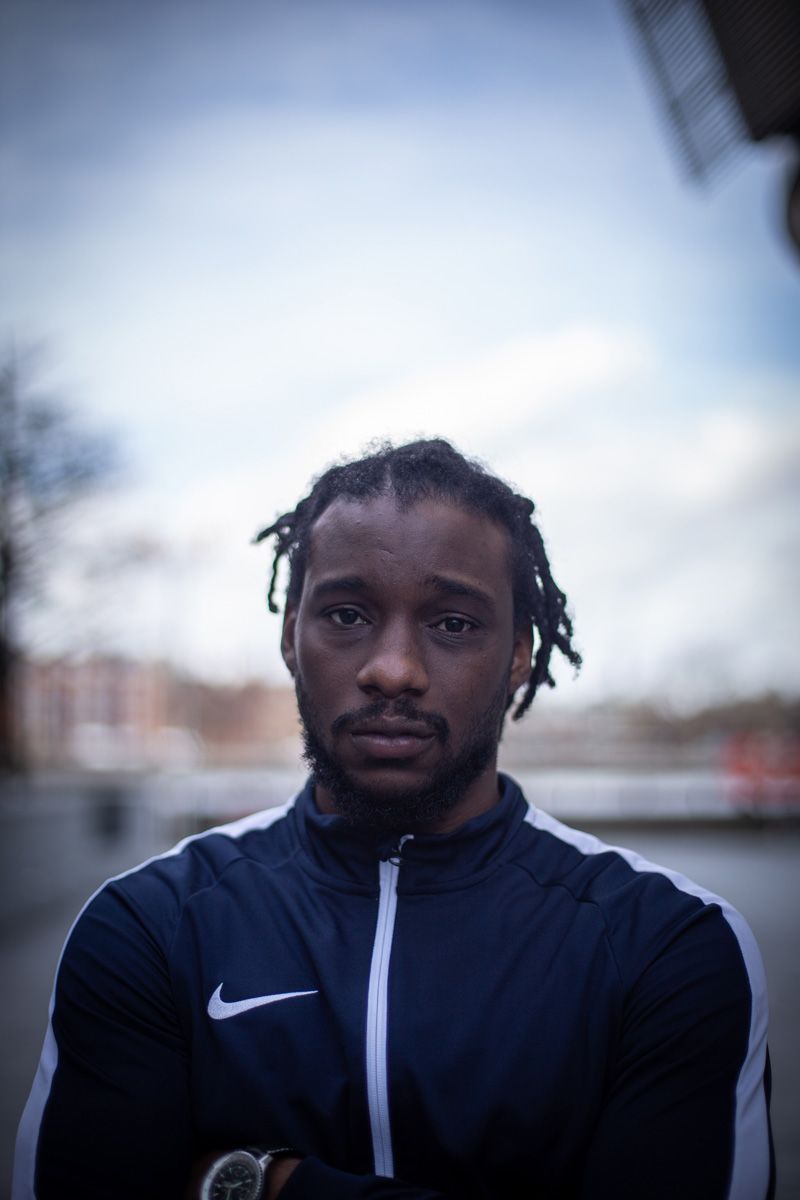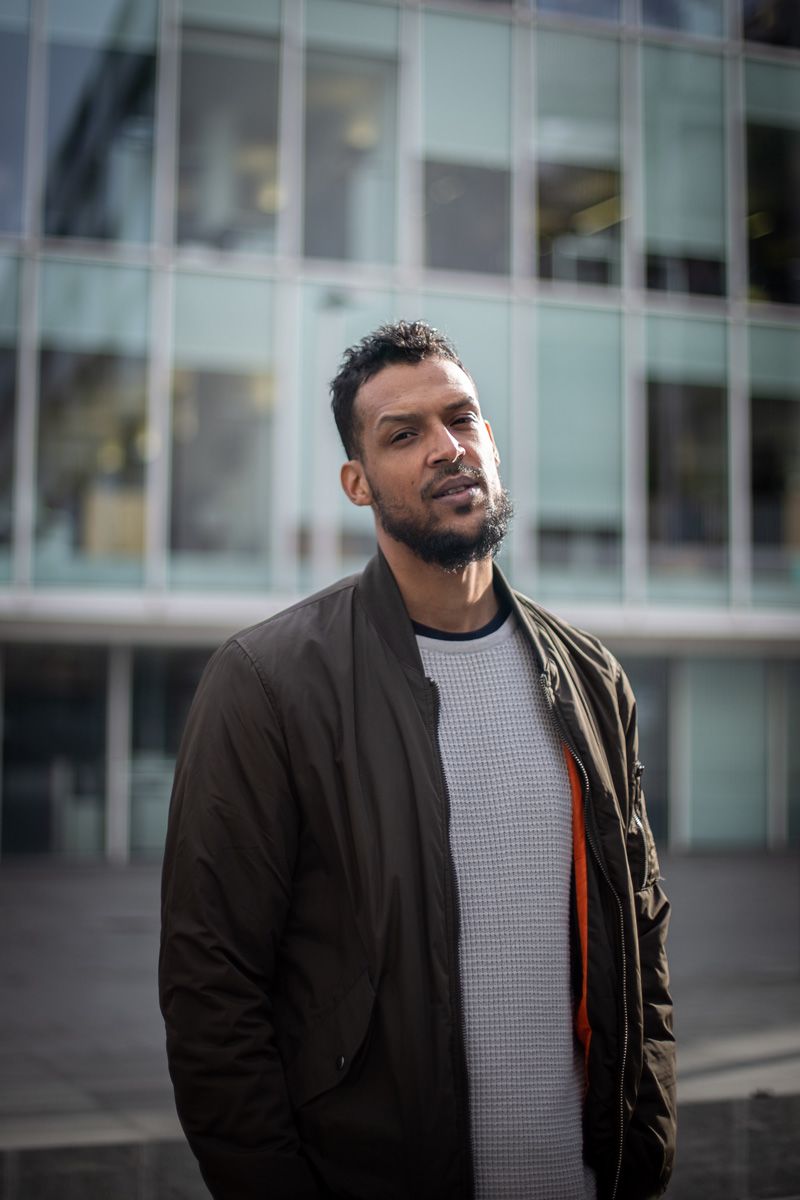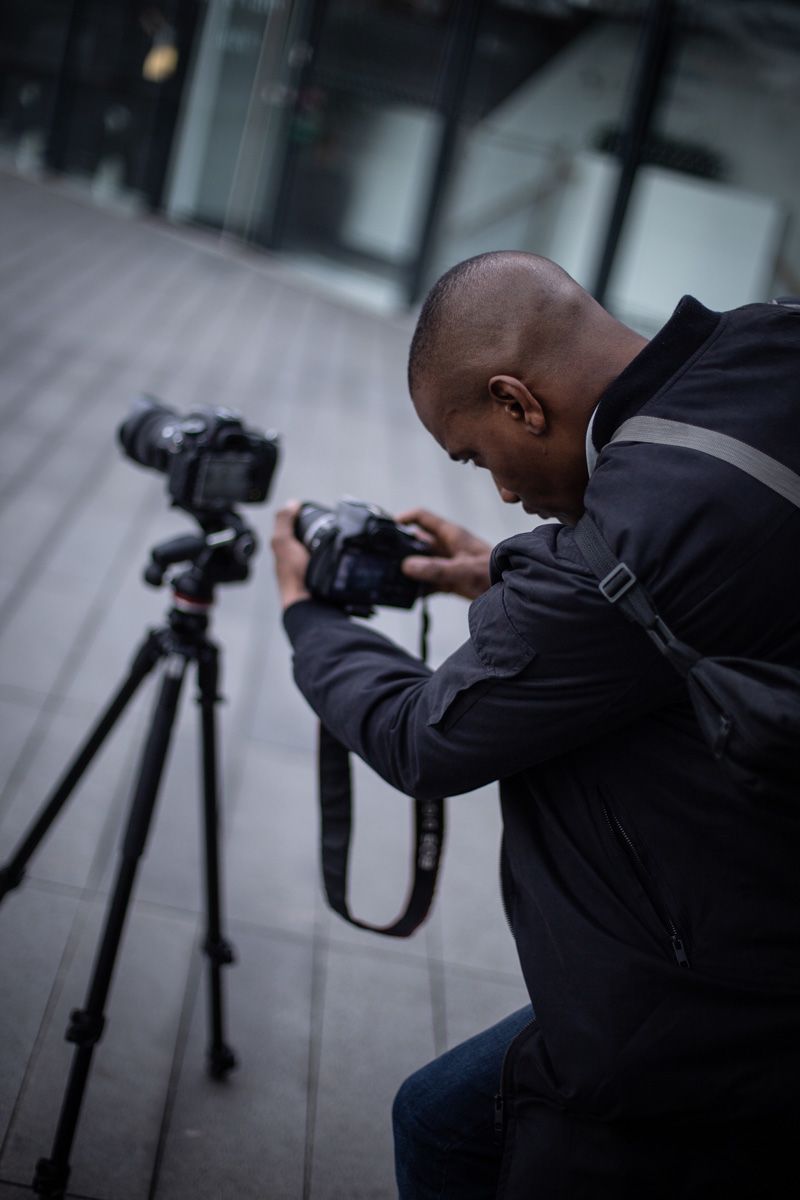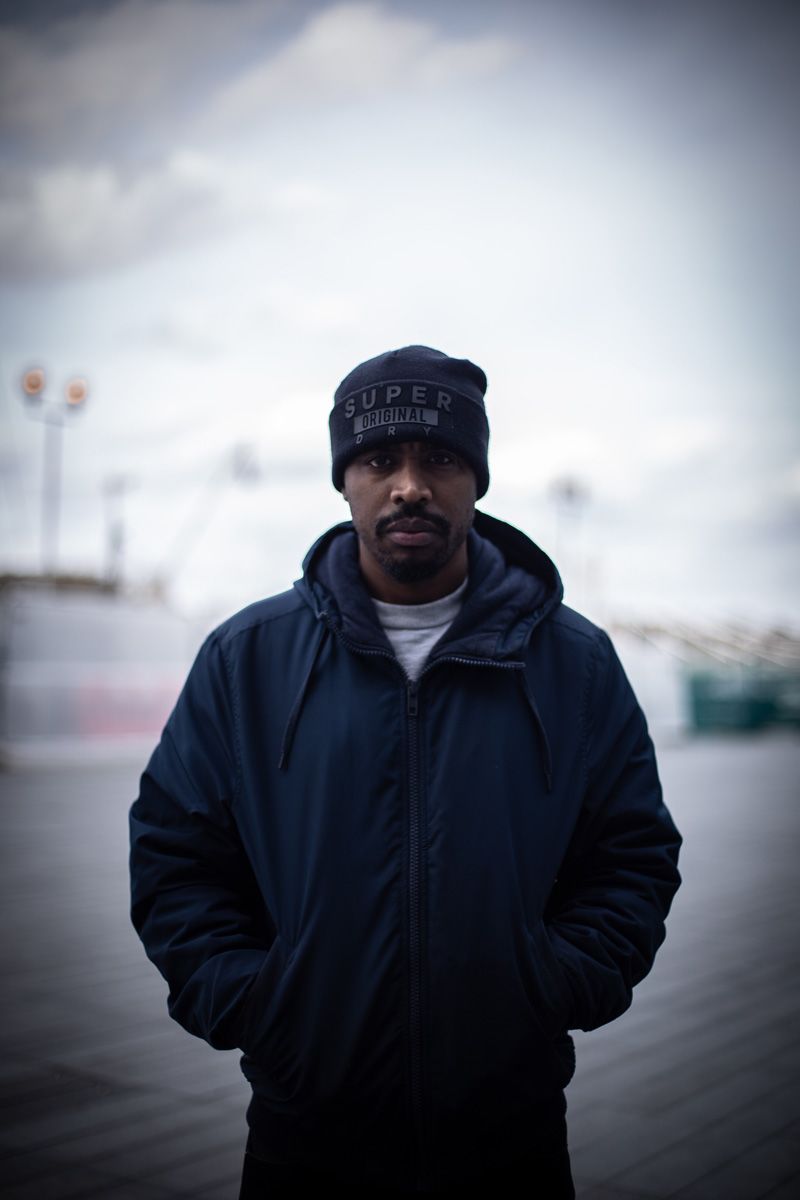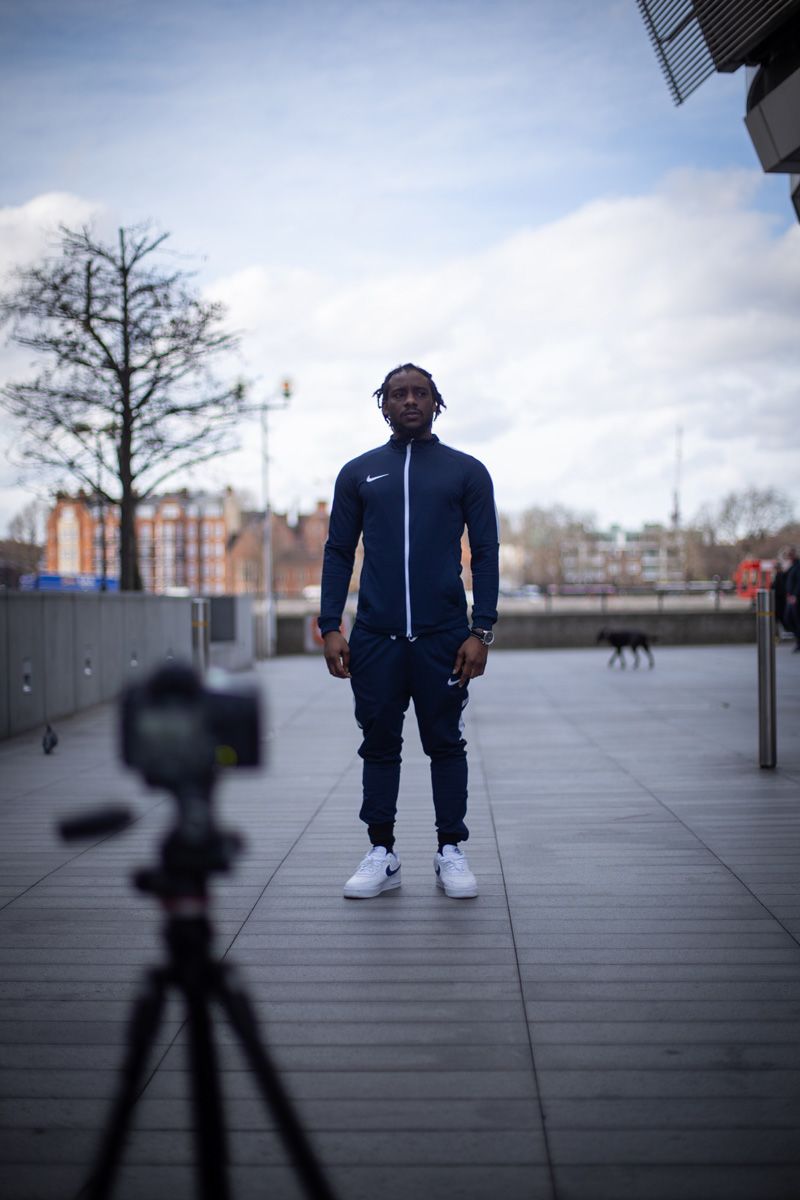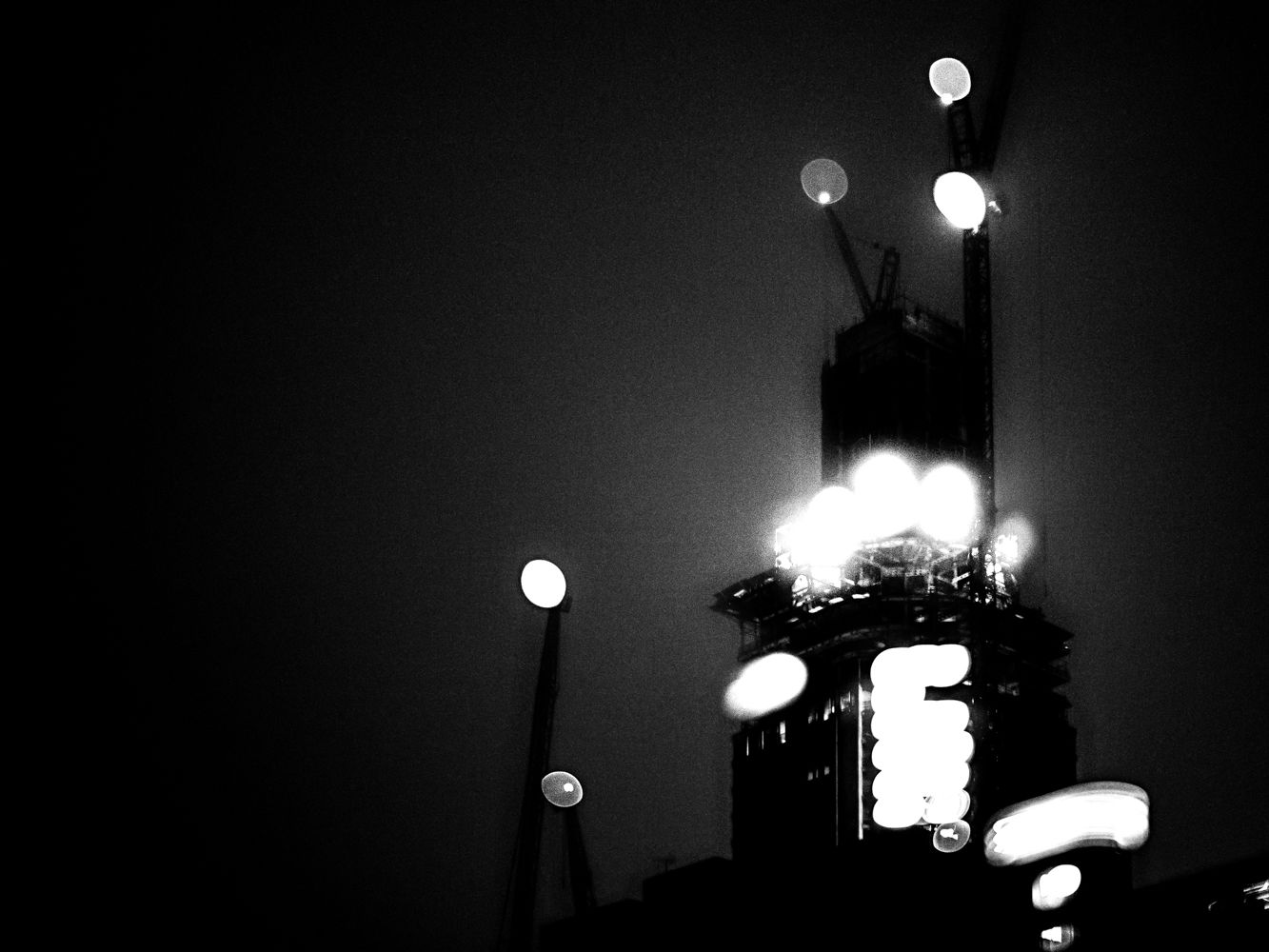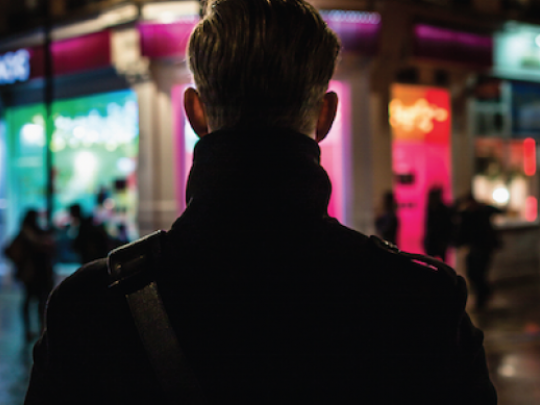“I actually don’t remember the moment I was stabbed. My brain blocked it. During the preparations for the Visible Justice exhibition, traumatic memories bounced back, I’m connecting with them even though I’m in a different country, in a different context”, says Carlos Saavedra, a Colombian student from London College of Communication. He is a participant in the Young Blood exhibition in Visible Justice.
Having witnessed kidnappings and armed conflict in South America as a photographer, he is surprised to see knife crime being pointed out as a particular problem in London. “We don’t really acknowledge knife crime in Colombia as an issue. There’s so much more going on around the country, that it becomes very small in comparison” he says. Indeed, the knife crime reports in London reflect a particular situation. While the same issue in Colombia and many socially unstable parts of the world is usually associated with violent attacks, such as robbery, in London, one of the main reasons for the spike is attributed to a sense of insecurity felt by the younger generations. New Metropolitan Police figures reveal that half of all knife crime offenders in London are teenagers or even younger children. Carrying and using blades and sharp objects for protection has become a part of life for some young Londoners.
In Colombia, especially in the bigger cities, knife crime can easily happen if people don’t remain vigilant while walking in the streets. “In Bogota, the country’s capital city, you can get robbed in the middle of the day, even in a posh area. I would never carry my camera out. To check my phone, I have to be very careful, and can only take a quick glimpse, then put it back,” Carlos continues. He considers himself as a living example. “My phone was stolen once, right in the city centre. When people asked me what I was doing and I told them I had my phone out, their reactions were explanatory, I heard things like: ‘Dude... That’s why you got robbed.’ An attack isn’t always about the money, it could just be a personal argument.
“I thought I would be scared and worried permanently after being stabbed, but at the end of the day, I was okay." – Carlos Saavedra
The scar on Carlos’ abdomen has been there for the last seven years. He was spending a night out with friends. After ordering some food from a food truck, a friend of his had an argument with the vendor. As they were yelling at each other, both men’s temper reached a tipping point. The food truck owner begun to throw about all kinds of things, knives included. Carlos stepped up as a mediator to try to calm both sides down and, all of a sudden, the blade pierced through the skin on his abdomen. “The wound was small but deep, it went in around 6 to 7 centimetres.” He was sent to a hospital immediately, in order to check if there was any internal damage to his organs. There’s a vertical 5cm cut marked down from his belly button to prove it. Fortunately, the wound didn’t compromise his life and he’s able to tell the story.
As soon as Carlos fully recovered, he went straight back to work. For him, life went on as usual. Last September, he arrived in London to pursue a postgraduate degree and he maintains an ‘over-alert’ attitude in everyday life, “When I moved to London, I still carried my bag between my legs, in case someone tried to take it. I’m always making sure everything is still in it. It has become a mechanical reflex for me”, he explains.
While searching for a theme for the Visible Justice exhibition, the striking young age profile of London’s knife offenders caught a group of students’ attention. For Carlos, there was a possibility of relating or looking at knife crime from a different perspective. “I thought I would be scared and worried permanently after being stabbed, but at the end of the day, I was okay. In a way, even though I have never actually processed my emotions,
I managed to move on because I felt fine”, he continues. He says that when he compares his story to the ones he’s heard in his new surroundings, he believes that his experience was not the worst scenario, “after interviewing people living within this ‘massacre’, my story is nothing.”
As a knife crime survivor, Carlos found it difficult to remain calm during the works for the exhibition. “I was mad at one point. People were talking about research, statistics. Everybody was being rational, but I was being subjective. It was affecting me because I´m part of the narrative. I’m a victim as well.” Nonetheless, the experience overall helped him heal too, he recounts. He reached out to participants and filmed the grassroots social action project Knives Down, Bikes Up.
He shared his experience with students and teachers in class and, gradually, things start to connect. “Whenever I went back to those moments, those little details, my body would react, as would my mind. By talking to knife crime offenders, I tried to understand them and their feelings. It helped explain what happened to me. When you think about London, you always picture it to be a perfect place, ‘England! Amazing England!’. I always knew I would have a discussion about knife crime but never expected it to be here, that’s why I was surprised when the topic was brought to the table.”
He decided to further explore his emotions by continuing his work on the issue, “I realised I need to process those experiences through the work I do.” Getting in touch with more people who have been involved in knife crime and by being a culturally engaging humanist are his way of ‘self-therapy’. “I need to believe that people can change, that they have a humanitarian side, even though they have been stabbed or have stabbed somebody. I am willing to face the fear from the trauma and see what happens.”
Words by Wan Chiu Ue for Visible Justice.
Visible Justice takes place at London College of Communication from Wednesday 17 April to Friday 3 May 2019, and is free and open to all.
- Find out about London College of Communication's Media School
- Explore events at London College of Communication
- Follow LCC on Instagram to see behind-the-scenes at the College
